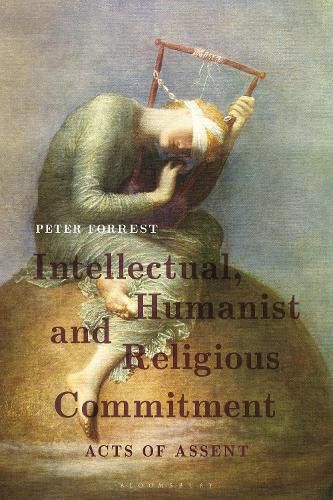Readings Newsletter
Become a Readings Member to make your shopping experience even easier.
Sign in or sign up for free!
You’re not far away from qualifying for FREE standard shipping within Australia
You’ve qualified for FREE standard shipping within Australia
The cart is loading…






This book offers a rigorous analysis of why commitment matters and the challenges it presents to a range of believers.
Peter Forrest treats commitment as a response to lost innocence. He considers the intellectual consequences of this by demonstrating why, for example, we should not believe in angels. He then explores why humans are attached to reason and to humanism, recognising the different commitments made by theist and non-theist humanists. Finally, he analyses religious faith, specifically fideism, defining it by way of contrast to Descartes, Pascal and William James, as well as contemporary philosophers including John Schellenberg and Lara Buchak.
Of particular interest to scholars working on the philosophy of religion, the book makes the case both for and against committing to God, recognising that God’s divine character sets up an emotional rather than an intellectual barrier to commitment to worship.
$9.00 standard shipping within Australia
FREE standard shipping within Australia for orders over $100.00
Express & International shipping calculated at checkout
Stock availability can be subject to change without notice. We recommend calling the shop or contacting our online team to check availability of low stock items. Please see our Shopping Online page for more details.
This book offers a rigorous analysis of why commitment matters and the challenges it presents to a range of believers.
Peter Forrest treats commitment as a response to lost innocence. He considers the intellectual consequences of this by demonstrating why, for example, we should not believe in angels. He then explores why humans are attached to reason and to humanism, recognising the different commitments made by theist and non-theist humanists. Finally, he analyses religious faith, specifically fideism, defining it by way of contrast to Descartes, Pascal and William James, as well as contemporary philosophers including John Schellenberg and Lara Buchak.
Of particular interest to scholars working on the philosophy of religion, the book makes the case both for and against committing to God, recognising that God’s divine character sets up an emotional rather than an intellectual barrier to commitment to worship.